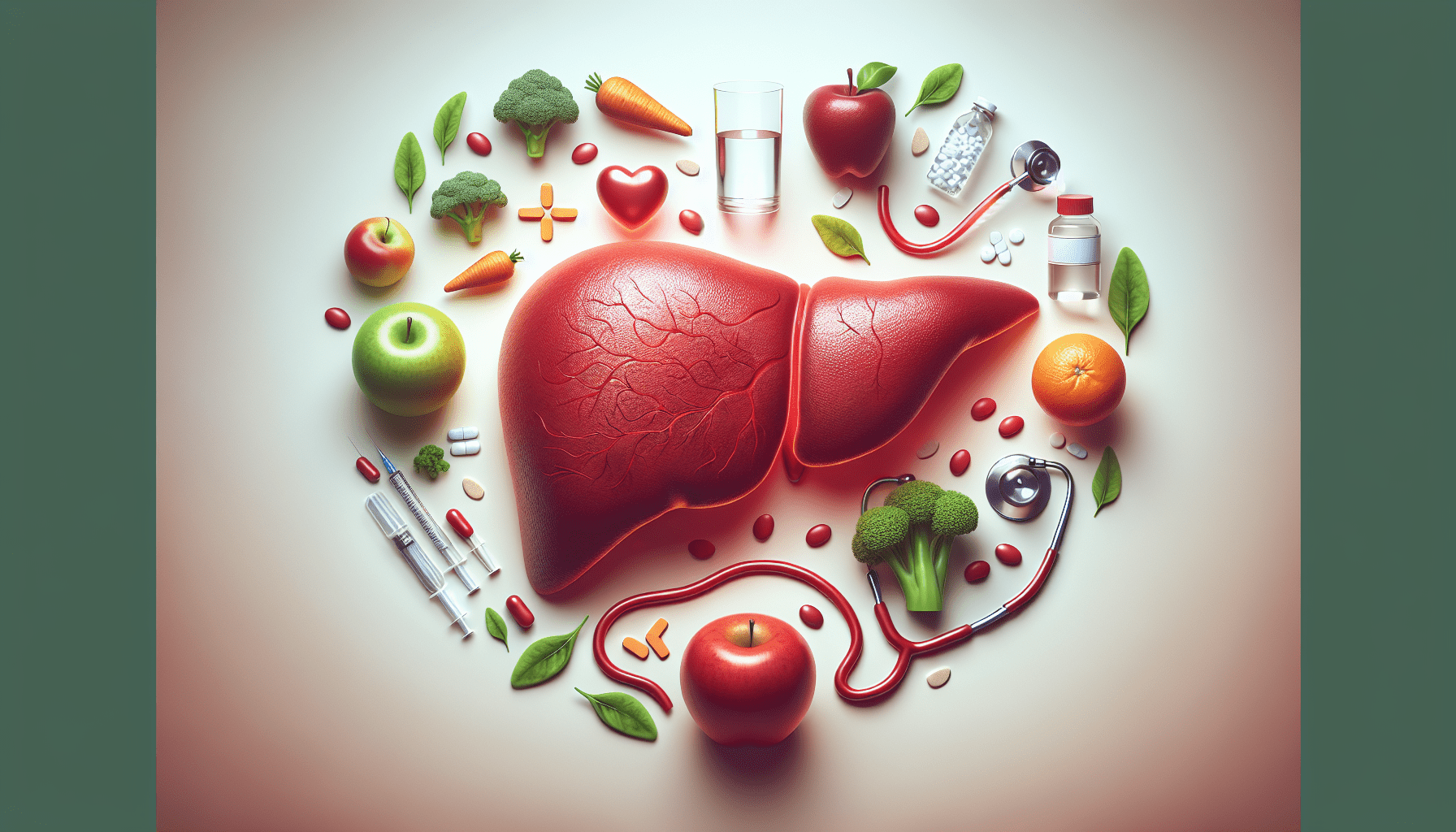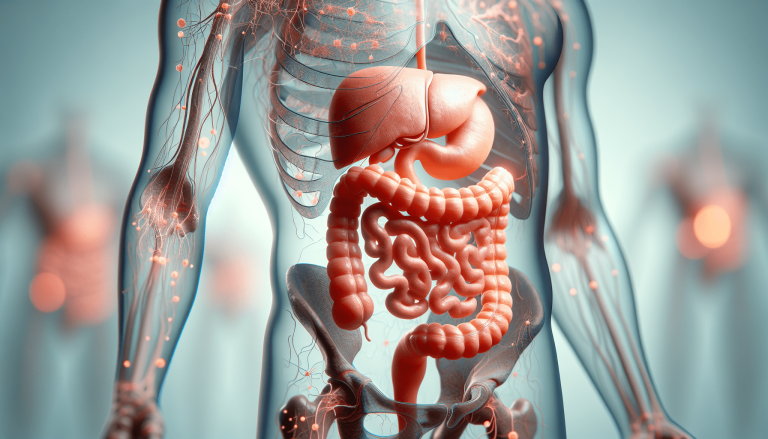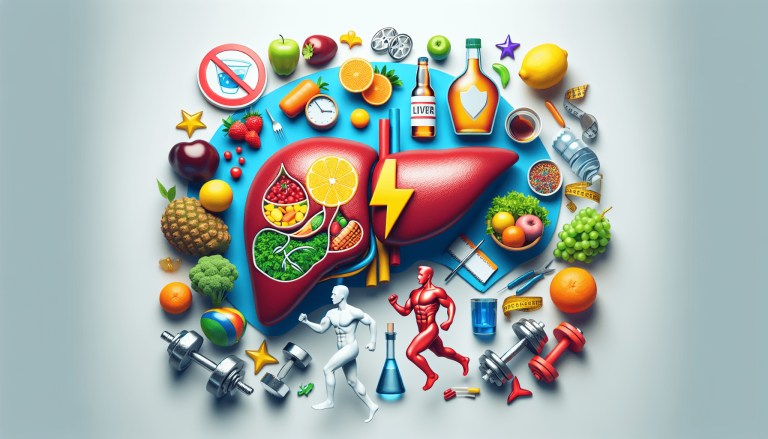How Do I Know If My Liver Is Healthy?
Your liver plays a crucial role in keeping your body healthy, and being aware of its condition is essential for your overall well-being. In “How Do I Know If My Liver Is Healthy?” you will learn about the signs that indicate a healthy liver and understand the symptoms that may signal a problem. This guide will help you recognize the importance of liver health and equip you with the knowledge to take proactive steps in maintaining its function. By being informed, you can ensure your liver continues to support your body’s vital processes. Have you ever wondered, “How do I know if my liver is healthy?” Your liver is one of the most vital organs in your body, working tirelessly to filter toxins from your blood, produce bile for digestion, and store essential nutrients. But how can you tell if it’s functioning well? Let’s delve into this essential topic and explore the ways you can assess your liver health.

What is the Liver and Why is it Important?
The liver is a large, reddish-brown organ located in the upper right side of your abdomen. It’s essential for many bodily functions, from filtering toxins to producing bile and storing glycogen for energy. Without a healthy liver, your body can’t function properly.
Functions of the Liver
The liver performs various critical functions that keep your body running smoothly. Here’s a handy table to summarize some key roles:
| Function | Description |
|---|---|
| Detoxification | Filters and removes harmful substances from the blood |
| Bile Production | Produces bile to aid in digesting fats |
| Nutrient Storage | Stores essential vitamins and minerals such as Vitamin A, D, E, K, and iron |
| Metabolism | Converts carbohydrates into glucose and filters drugs and alcohol |
| Protein Synthesis | Produces proteins that are crucial for blood clotting |
Knowing these functions helps you appreciate why maintaining liver health is vital.
Symptoms of Liver Problems
Recognizing the symptoms of liver issues is the first step in assessing liver health. While some symptoms may be subtle, others can be quite obvious.
Common Symptoms
Here are some common signs that your liver might not be functioning optimally:
- Fatigue: Feeling excessively tired can be a sign that your liver isn’t filtering toxins efficiently.
- Jaundice: Yellowing of the skin and eyes indicates a buildup of bilirubin in the blood.
- Abdominal Pain: Persistent pain in the upper right side of the abdomen can be a symptom of liver problems.
- Swelling: Fluid retention in the abdomen and legs can signal liver issues.
- Changes in Urine and Stool: Dark urine and pale stool can indicate liver dysfunction.
It’s important to consult a healthcare provider if you experience any of these symptoms regularly.
How to Diagnose Liver Health
If you’re experiencing any symptoms or simply want to ensure your liver is healthy, several diagnostic tests can help.
Blood Tests
Blood tests can provide a lot of information about your liver health. Common liver function tests include:
| Test Name | Description |
|---|---|
| ALT (Alanine Aminotransferase) | Measures levels of this enzyme to assess liver cell damage |
| AST (Aspartate Aminotransferase) | Another enzyme indicative of liver damage |
| ALP (Alkaline Phosphatase) | High levels can suggest bile duct issues |
| Bilirubin | Measures the amount of bilirubin in the blood |
| Albumin | Tests protein levels to evaluate liver’s synthetic capacity |
Imaging Tests
Sometimes, blood tests are not enough, and imaging tests might be necessary:
- Ultrasound: Provides a visual assessment of liver structure.
- CT Scan: Offers detailed images and can detect tumors or fatty liver.
- MRI: Gives comprehensive information about liver tissue and blood flow.
These tests can help pinpoint the exact nature of any liver problems.
Lifestyle Factors Influencing Liver Health
Taking care of your liver starts with adopting a healthy lifestyle. After all, the choices you make daily impact your liver’s ability to function properly.
Diet
A balanced diet can improve liver health significantly. Here are some tips:
- Eat Plenty of Fruits and Vegetables: These foods are rich in antioxidants that help protect liver cells.
- Healthy Fats: Opt for olive oil, avocados, and nuts instead of saturated and trans fats.
- Avoid Processed Foods: High in unhealthy fats and sugars, they can strain your liver.
- Hydrate: Drink plenty of water to help your liver flush out toxins.
Exercise
Regular exercise is beneficial for maintaining a healthy liver. Physical activity helps improve blood flow to the liver and reduces fat buildup.
Avoiding Toxins
Limit exposure to harmful substances such as:
- Alcohol: Excessive drinking is a leading cause of liver disease.
- Drugs: Use medications responsibly and avoid illegal drugs.
- Chemicals: Minimize exposure to harsh chemicals and pesticides.
Positive lifestyle changes can significantly impact your liver health for the better.

The Role of Hydration
Staying hydrated is crucial for overall health, including the health of your liver. Your body uses water to cleanse and detoxify.
Importance of Water
Water aids in digestion, helps to transport nutrients to cells, and assists in removing waste products from the body. Keeping your liver hydrated ensures it can function at its best.
How Much Water Should You Drink?
There’s no one-size-fits-all answer, but a common recommendation is to drink at least eight 8-ounce glasses of water a day.
| Activity Level | Water Intake Recommendation per Day |
|---|---|
| Low | 8 glasses |
| Moderate | 9-10 glasses |
| High | 11-12 glasses |
Adjust based on your activity level and personal needs.
Supplements for Liver Health
Supplements can also support liver health, though they should never replace a balanced diet and healthy lifestyle.
Common Supplements
Here are some common supplements known for their liver-boosting properties:
- Milk Thistle: Has anti-inflammatory and antioxidant properties.
- Turmeric: Contains curcumin, which helps reduce inflammation.
- Green Tea: Rich in antioxidants that support liver function.
- Dandelion Root: Acts as a natural diuretic, helping to cleanse the liver.
Always consult your doctor before starting any new supplement regimen.
Periodic Health Check-ups
Regular health check-ups are essential for early detection of liver issues.
Recommended Exams
Here’s what you should consider including in your annual health check-up:
| Test/Exam | Explanation |
|---|---|
| Liver Function Tests | As discussed earlier, these blood tests are crucial |
| Ultrasound | Provides a visual check on liver structure |
| Physical Examination | General check-up including palpation of liver area |
Periodic assessments can catch problems early, making them easier to manage or treat.
Recognizing Liver Disease Stages
Understanding the stages of liver disease can help you recognize early signs and take timely action.
Stages of Liver Disease
- Stage 1 (Inflammation): The liver becomes inflamed, causing tissue damage.
- Stage 2 (Fibrosis): Scar tissue forms, impairing liver function.
- Stage 3 (Cirrhosis): Extensive scarring leads to significant liver dysfunction.
- Stage 4 (End-Stage Liver Disease): Liver function diminishes substantially, often requiring a transplant.
Early diagnosis and intervention are crucial for effective treatment.
When to See a Doctor
If you experience symptoms or have risk factors for liver disease, it’s essential to consult a healthcare provider.
Red Flags
Watch out for these red flags that warrant immediate medical attention:
- Severe abdominal pain
- Sudden jaundice
- Unexplained weight loss
- Persistent fatigue
Prompt medical care can make a significant difference in outcomes.
Conclusion: Taking Charge of Your Liver Health
Your liver is a vital organ that plays multiple roles in keeping you healthy. Recognizing symptoms, getting regular check-ups, and adopting a healthy lifestyle can go a long way in ensuring your liver functions optimally.
Final Tips:
- Stay Hydrated: Keep your liver flushed and functioning well.
- Eat Balanced Diet: Nutrient-rich foods support liver health.
- Exercise Regularly: Physical activity aids liver function.
- Avoid Toxins: Cut down on alcohol and avoid harmful substances.
Taking these steps can help you maintain a healthy liver and a healthier you.
Additional Resources

If you’ve ever done a liver cleanse… You were probably shocked by the “gunk” that comes out…
But you were probably also blown away by how good you felt… your mental clarity… your energy… your digestion… even weight.
When you start digging into liver health like my good friend Drew Canole has — you’ll be even more stunned and amazed at what you discover. Because your liver is connected to just about everything happening in your body (even sex-hormones are regulated by the liver)…
Drew’s passion for liver health helps explain why he’s one of the healthiest people I’ve ever met.
==> Drew shares his #1 liver detox and rejuvenation secret here [see his eye-opening story here]






